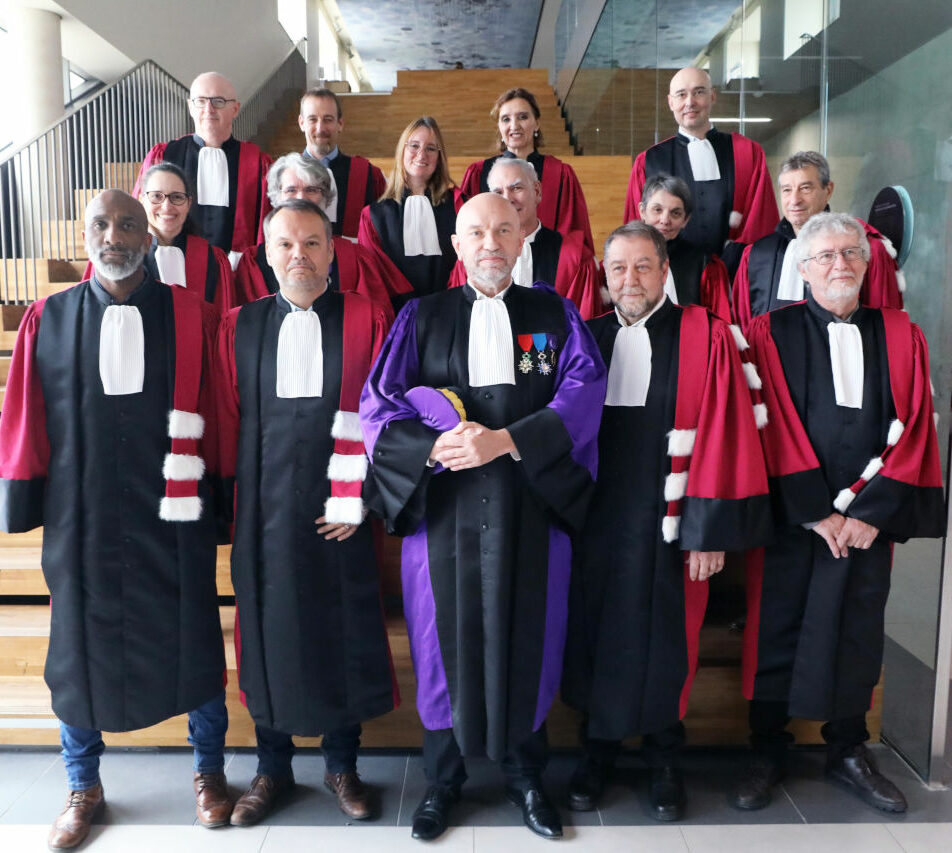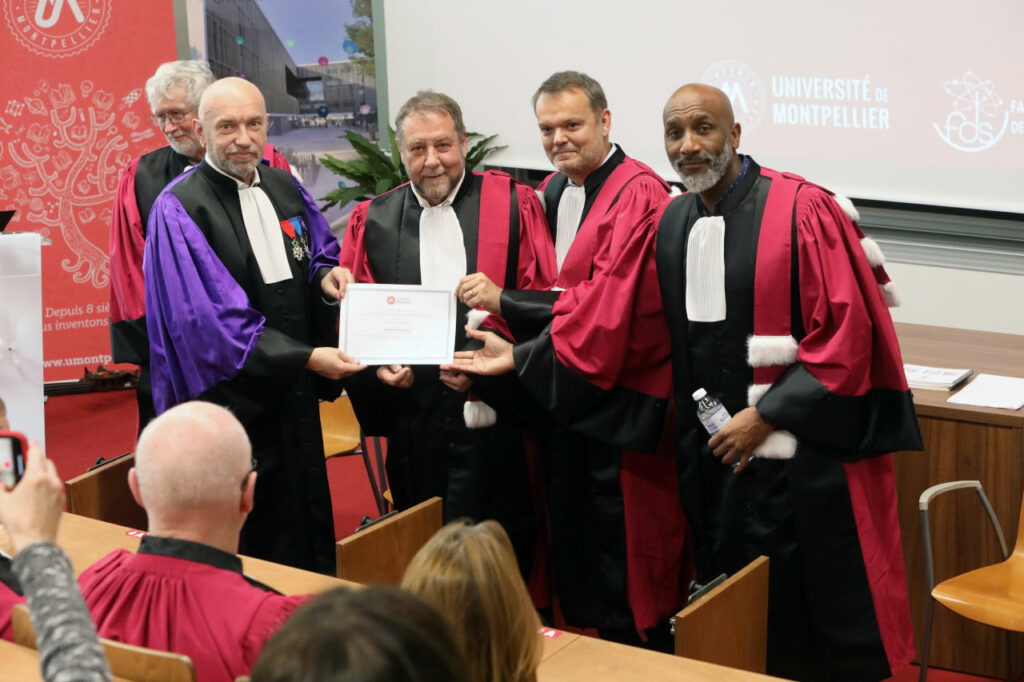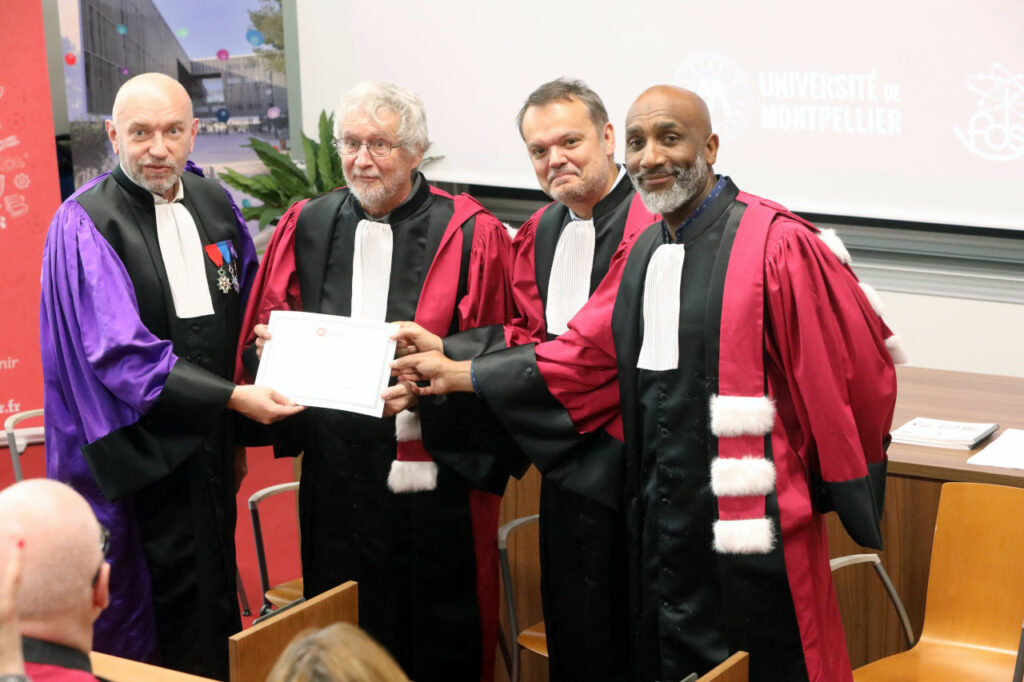Yves Bergeron and Yves Mauffette, honorary doctors of the University of Montreal
The University of Montpellier honored Canada on Friday, December 2, by awarding honorary doctorates to Quebec professors Yves Bergeron and Yves Mauffette. This was an opportunity for President Philippe Augé to highlight the valuable partnerships that unite not only UM with the University of Quebec in Montreal (UQAM) and in Abitibi-Témiscamingue (UQAT), but also with the universities of Laval and Sherbrooke.

After a warm formal welcome from the president of the UM and the dean of the Faculty of Science, Jean-Michel Marin, Ahmed Adam Ali, vice-dean and sponsor of the two recipients, delivered their eulogies. It was a successful exercise for this paleoecologist, a specialist in global change, biodiversity dynamics, and forest ecology, which allowed the audience to get to know these two prestigious Professors better.
Yves Mauffette, ecology and education

Yves Maufette is an associate professor at the University of Quebec in Montreal (UQAM). This ecologist specializing in plant-insect interactions is also a Professor worldwide for his work on educational innovations in universities. His expertise is particularly beneficial to the UM's Center for Educational Innovation Support. It is on this subject that Yves Maufette has chosen to give his lecture:
"The job of a university professor mainly involves teaching and research. Our training is primarily that of a researcher, and we often teach based on our intuition. In academia, our work is divided into three areas: research, teaching, and community service. In theory, these three tasks should be divided equally. Research is the key activity, as it will largely determine the success of our academic career, from promotion to international recognition. The second component of the task, teaching, is less valued. Choosing to invest in university teaching involves certain risks, as we are straying from the beaten path. Changing the content of one's course is one thing, but changing the university program in a field to a new teaching approach is almost senseless. Isn't training our students to better meet the needs of tomorrow a key issue? Research is progressing, so why not teaching?
Yves Bergeron, the cold forest specialist

Yves Bergeron, professor at the University of Quebec in Atibi-Témiscamingue (UQAT) and the University of Quebec in Montreal (UQAM), is a specialist in cold forests. Among other things, he is one of the driving forces behind the memorandum of understanding for the creation of the "Cold Forests" research project on the analysis of boreal ecosystems, in which the UM is also heavily involved.
The Canadian boreal forest is one of the world's last remaining natural forests, and it is under severe pressure. Traditional forest management practices have significantly reduced the proportion of old-growth forests. Fire, a source of soil disturbance that increases fertility, has been largely eliminated. Forest managers must find ways to replicate the key characteristics of natural forests through practices that mimic natural disturbances and forest dynamics. France has a long history of forest management in this crucial area, and paleoecological approaches have been developed to reconstruct the past. Over the past 20 years, the paleoecological expertise of the University of Montpellier has been applied in collaborative and joint supervision projects in the cold forests of Canada, France, and elsewhere in the world.
Created by decree on June 26, 1918, and whose origins may date back to the 17th century, the title of honorary doctorate pays tribute to foreign personalities who highlight and echo the values of the university through their contribution to the world of ideas, culture, arts, and sciences. Awarded during a formal ceremony, this academic title is the most distinguished and prestigious that can be conferred by a university.
